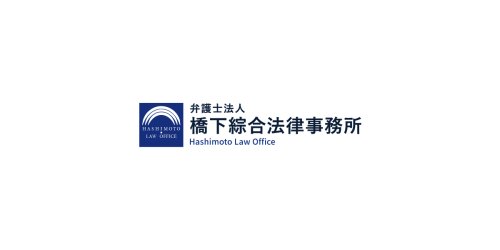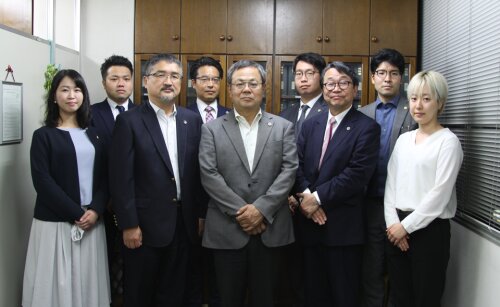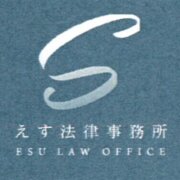Best Employment Benefits & Executive Compensation Lawyers in Japan
Share your needs with us, get contacted by law firms.
Free. Takes 2 min.
Or refine your search by selecting a city:
List of the best lawyers in Japan
About Employment Benefits & Executive Compensation Law in Japan
Employment Benefits and Executive Compensation law in Japan encompasses a wide range of legal issues related to the compensation and benefits provided to employees and executives. This area of law covers statutory benefits such as health insurance and pensions, as well as contractual and discretionary benefits like bonuses, stock options, and severance packages. It is regulated by various frameworks including the Labor Standards Act, the Health Insurance Law, and the National Pension Law. Companies must also consider tax implications and compliance with international standards when developing compensation plans for executives, especially those of multinational corporations.
Why You May Need a Lawyer
There are several common situations where individuals or companies may require legal assistance with Employment Benefits & Executive Compensation in Japan:
- Negotiating executive compensation packages, including stock options and bonuses.
- Addressing disputes over failure to pay bonuses or other contractual benefits.
- Ensuring compliance with Japanese labor laws and employment guidelines.
- Planning for tax implications of benefits and compensation both domestically and internationally.
- Handling cases of unlawful termination or disputes regarding severance pay.
- Advising on the integration of benefits and compensation plans following mergers and acquisitions.
- Representing during inspections or audits by labor standards offices.
Local Laws Overview
Employment Benefits and Executive Compensation in Japan are governed by several important laws and regulations:
- The Labor Standards Act provides the foundation for working conditions, including wages and hours, and ensures the payment of wages and fair dismissal practices.
- The Health Insurance Law mandates that employers participate in health insurance systems for their employees.
- The National Pension Law requires both employers and employees to contribute to the pension system.
- The Income Tax Act and related guidelines detail the tax treatment of various types of compensation and benefits, necessitating careful planning.
- Several directives from the Ministry of Health, Labour and Welfare (MHLW) guide compliance with employment-related standards.
Frequently Asked Questions
What constitutes executive compensation in Japan?
Executive compensation typically includes base salary, bonuses, stock options, pensions, and other benefits that are provided to executives to incentivize performance and retain talent.
Are bonuses mandatory in Japan?
Bonuses are not explicitly required by law, but many companies pay bonuses as part of customary practice or contractual agreement. If bonuses are stipulated in an employment contract or work rules, they become obligatory.
How are stock options taxed in Japan?
Stock options in Japan are subject to income tax at the time of exercise, and additional withholding tax may apply upon sale. Taxation can vary depending on whether options are classified as "qualified" or "non-qualified."
What are the pension requirements for employees in Japan?
Employees in Japan are typically enrolled in the Employees' Pension Insurance (EPI) scheme. Employers and employees both contribute to the system, which provides retirement benefits based on earnings and length of service.
How can employers ensure compliance with the Labor Standards Act?
Employers can ensure compliance by adhering to statutory requirements on wages, work hours, rest periods, and by maintaining transparent and up-to-date employment contracts and work rules.
What is the procedure for resolving employment disputes in Japan?
Employment disputes can be resolved through mediation, arbitration, or litigation. They may be addressed internally first through company grievance procedures and escalated to external bodies if necessary.
How is severance pay handled in Japan?
Severance pay is not mandated by law unless stipulated in an employment contract or company policy. However, providing severance is a common business practice.
Are there any special considerations for expatriates receiving compensation in Japan?
Expatriates must consider Japanese taxation on worldwide income, social insurance contributions, and potential tax treaties to avoid double taxation.
Can employees opt out of statutory benefits?
Employees cannot opt out of statutory benefits such as health insurance and pensions, as participation is legally required for eligible employees.
What role do unions play in negotiating employment benefits and executive compensation?
Unions actively engage in collective bargaining for employee benefits and working conditions, sometimes influencing decisions on bonuses and wages through parallel negotiations.
Additional Resources
For more information, the following resources may be helpful:
- Ministry of Health, Labour and Welfare (MHLW): Offers guidance and regulations concerning labor standards and benefits.
- Japan Federation of Bar Associations: Provides access to legal professionals specialized in employment law.
- Social Insurance Agency: Offers information on statutory insurances and pensions.
- Local labor offices: Can provide support and mediation services in employment-related matters.
Next Steps
If you require legal assistance in the area of Employment Benefits & Executive Compensation in Japan, consider taking the following steps:
- Identify your specific needs and objectives regarding employment benefits or compensation issues.
- Consult a lawyer with expertise in Japanese employment law to evaluate your situation and advise on legal obligations and rights.
- Gather relevant documents, such as employment contracts, work rules, and company communications, to present during your consultation.
- Stay informed about current laws and updates to ensure ongoing compliance and awareness of your rights.
Lawzana helps you find the best lawyers and law firms in Japan through a curated and pre-screened list of qualified legal professionals. Our platform offers rankings and detailed profiles of attorneys and law firms, allowing you to compare based on practice areas, including Employment Benefits & Executive Compensation, experience, and client feedback.
Each profile includes a description of the firm's areas of practice, client reviews, team members and partners, year of establishment, spoken languages, office locations, contact information, social media presence, and any published articles or resources. Most firms on our platform speak English and are experienced in both local and international legal matters.
Get a quote from top-rated law firms in Japan — quickly, securely, and without unnecessary hassle.
Disclaimer:
The information provided on this page is for general informational purposes only and does not constitute legal advice. While we strive to ensure the accuracy and relevance of the content, legal information may change over time, and interpretations of the law can vary. You should always consult with a qualified legal professional for advice specific to your situation.
We disclaim all liability for actions taken or not taken based on the content of this page. If you believe any information is incorrect or outdated, please contact us, and we will review and update it where appropriate.
Browse employment benefits & executive compensation law firms by city in Japan
Refine your search by selecting a city.
















